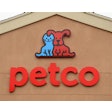
From Petfood Industry:
After President Trump withdrew from the Trans-Pacific Partnership trade deal before the US Congress ratified it, a pet food and animal feed industry organization, the American Feed Industry Association (AFIA), expressed disappointment. The TPP would have increased trade opportunities in Pacific Rim nations for the US pet food industry, said AFIA President and CEO Joel G. Newman in a press release.
Trump’s executive decision to withdraw from TPP altered the outlook for certain US pet food exports to TPP member countries, according to Gina Tumbarello of the American Feed Industry Association during her Pet Food Conference presentation at the International Production and Processing Expo on January 31 in Atlanta, Georgia, USA.
The TPP would have reduced tariffs on dog and cat food, said Tumbarello. The trade deal would also have addressed phytosanitary and environmental issues.
In 2015, the US pet food industry exported 286 TMT of pet food to TPP member countries with a value of US$967 million, she said.
History of TPP and pet food
Last year, both the AFIA and the Pet Food Institute (PFI) urged the US House of Representatives and Senate to ratify the TPP trade deal.
“US exports to the Asia-Pacific region have grown, but the share of US trade in that area has declined relative to other countries because countries in that region have bilateral or regional free trade agreements with US competitors,” said Tumbarello, in a press release. “For example, a recent USDA report found the Japan-Australia trade deal could result in a US$100 million loss in exports to Japan. Ratifying TPP would significantly reduce this effect.
“To ensure the US plays a leading role in this important global region, Congress must approve TPP,” she said.
PFI echoed this sentiment. PFI joined 220 US food and agriculture stakeholder groups in writing a letter urging House and Senate leadership to ratify the agreement.
"The TPP Agreement will increase the ability of U.S. pet food makers to establish and expand their presence throughout the Asia-Pacific region by reducing tariff and non-tariff barriers and by requiring transparent, science-based regulation," said a PFI representative on their website. "These changes will make U.S. pet food more accessible and more competitive throughout these key export markets, which will in turn support the creation of many new jobs right here at home."

















